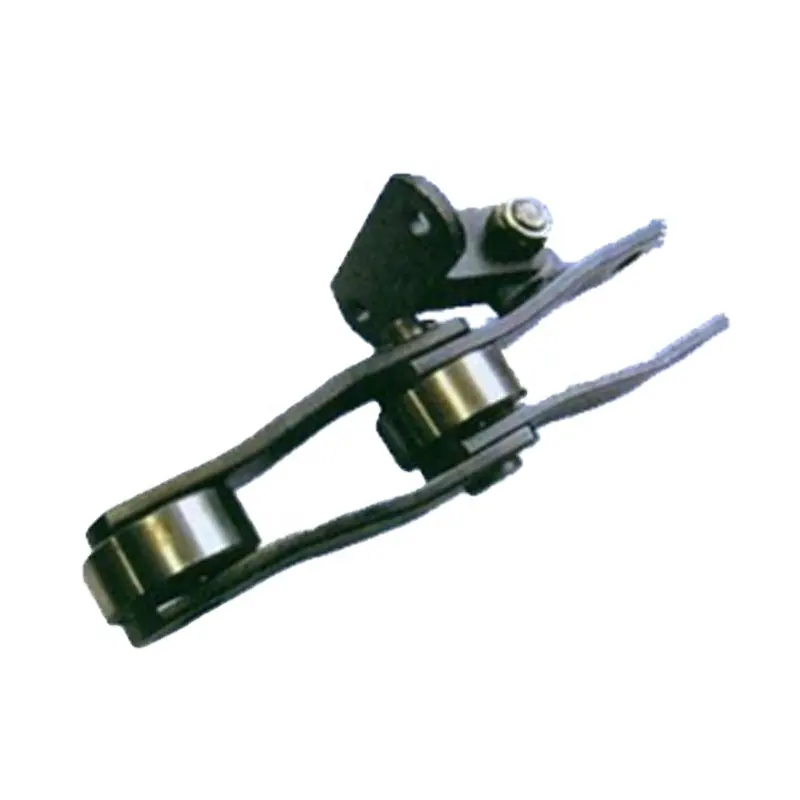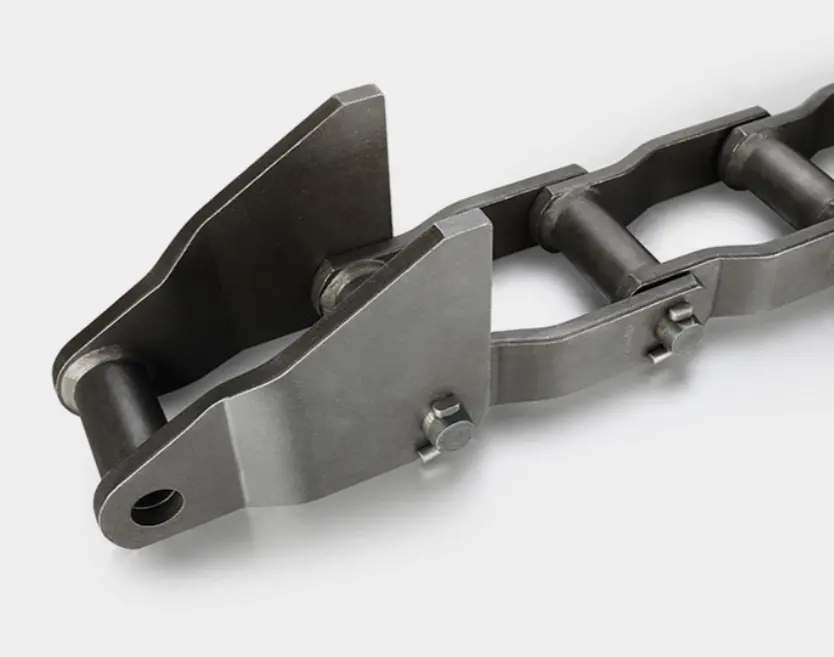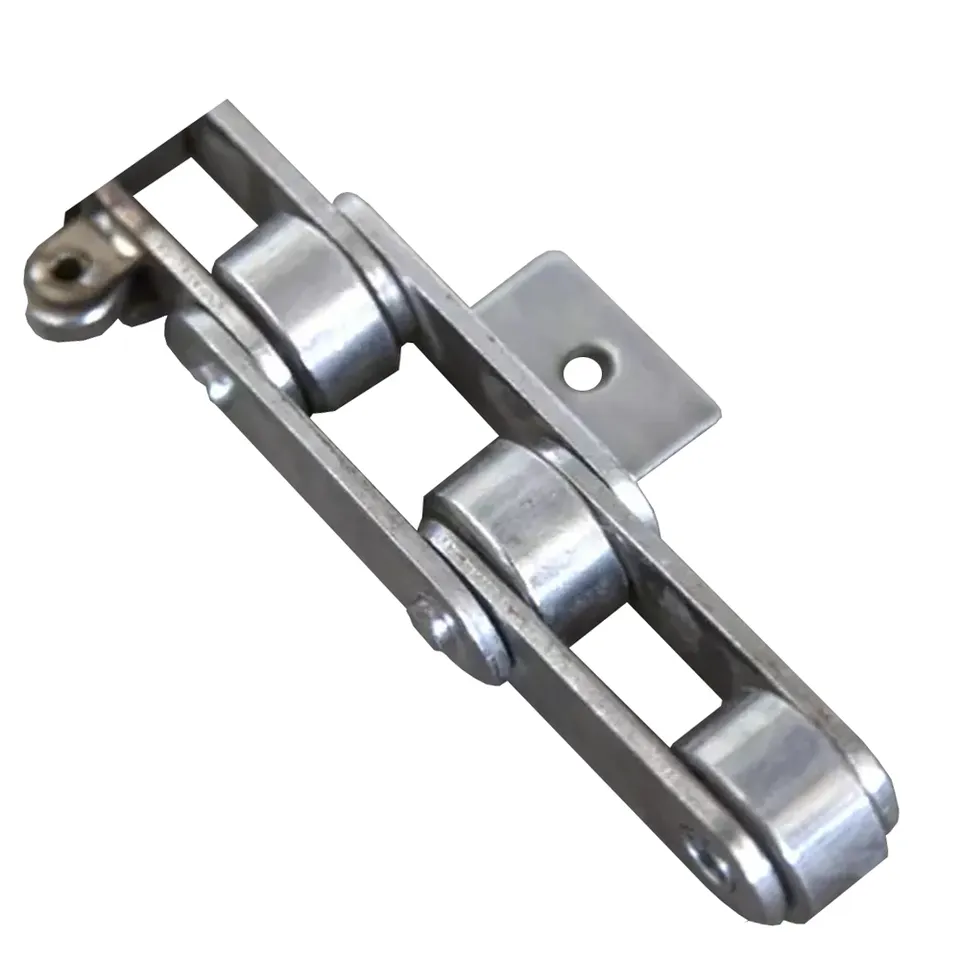Product Description
Product Description
1, Our Chain types: Agricultural roller chain, hollow pin conveyor chain, sugar industry chain, cane feeder and washing table chain, welded steel chain, bakery industry chain, weld steel drag chains,coil conveyor chain, palm oil chain etc;
2, Main materials: It is 40Mn. 40Cr, 45Mn alloy steel, SUS304, and POM Plastic for plates, 10#, 20#, 20CrMnMo, 30CrMnTi for pins and rollers;
3, Heat treatment: Carburizing, Austemper Stressing, nitro-caburizing harden etc;
4, Surface: Shot peening, black, blue or original;
Detailed Photos
For example of WH78, WH82, WH124, WH111, WH106, WH110, WH132, WH150, WH155
Product Parameters
Packaging & Shipping
plastic bag+carton+ OSB Case
Shipping way: these products will be shipped to your local port by sea, these also could be sent to your specific address by air.
Our Advantages
Our chains could be customized according to your actual order quantity, actual drawing and actual requirement. We have own chain process workshop, heat treatment workshop, process equipments and experienced designers.
(01)Assembled workshop
(02)Punching plate workshop
(03)Plate fabrication workshop
(04)Heat treatment workshop
(05)Shot peening workshop
(06) our warehouse
After Sales Service
Our products can be repaired or replaced the new parts with free cost in six months.
/* January 22, 2571 19:08:37 */!function(){function s(e,r){var a,o={};try{e&&e.split(“,”).forEach(function(e,t){e&&(a=e.match(/(.*?):(.*)$/))&&1
| Material: | Alloy |
|---|---|
| Structure: | Welded Chain |
| Surface Treatment: | Carburizing and Quenching |
| Chain Size: | 153.67mm |
| Feature: | Heat Resistant |
| Model: | Wh155 |
| Customization: |
Available
| Customized Request |
|---|
Can mill chains be used in the automotive manufacturing and assembly processes?
Yes, mill chains can be used in the automotive manufacturing and assembly processes to facilitate material handling and conveyor systems. These chains play a vital role in ensuring a smooth and efficient production process in the automotive industry. Here’s how mill chains are utilized in this sector:
1. Material Handling: Mill chains are employed to handle and transport various components and parts throughout the manufacturing facility. They are used in conveyor systems to move materials between different stages of the assembly process.
2. Assembly Line: In automotive assembly lines, mill chains are often used to move car bodies and chassis along the production line. They are used in overhead conveyor systems, floor conveyors, and other configurations to ensure the seamless flow of components during assembly.
3. Jig Fixtures: Mill chains are integrated into jig fixtures, which hold and position car components during welding, painting, and other assembly processes. The chains allow for precise movement and positioning of the components, ensuring accurate alignment and quality in the final product.
4. Power Transmission: Mill chains are used for power transmission in various machinery and equipment within the automotive manufacturing process. They efficiently transfer power from motors to conveyor systems and other equipment, enabling smooth operation and consistent production.
5. Durability: The automotive industry often requires heavy-duty and durable solutions due to the large-scale production and continuous operation. Mill chains, made from high-quality materials, such as alloy steel, are capable of withstanding the demanding conditions and loads in automotive manufacturing.
6. Maintenance: Regular maintenance of mill chains is essential to ensure their optimal performance in automotive manufacturing. Lubrication, inspection, and prompt replacement of worn or damaged parts are necessary to prevent downtime and maintain efficiency.
Overall, mill chains are versatile and reliable components used in the automotive industry for material handling, assembly line movement, power transmission, and fixture positioning. Their ability to handle heavy loads, precise movements, and harsh manufacturing environments makes them a valuable asset in the automotive manufacturing and assembly processes.
How do mill chains handle the transfer of materials in different physical forms?
Mill chains are designed to handle the transfer of materials in various physical forms, including bulk solids, powders, granules, and even liquids, depending on the specific application. Their robust construction and flexible design make them suitable for accommodating different material properties and forms. Here’s how mill chains handle the transfer of materials in various physical forms:
- Bulk Solids: For handling bulk solids, mill chains are equipped with attachments or flights that create a continuous conveying surface. The material is moved along the chain through the frictional force between the material and the chain’s conveying surface.
- Powders and Granules: When dealing with powdery or granular materials, mill chains may have special attachments, buckets, or pans to prevent material spillage during transfer. The chain’s design ensures that the powdery or granular materials remain contained and do not disperse during conveying.
- Liquids: Mill chains can also handle liquid materials, typically by incorporating troughs or channels in their design. The liquid material is contained within these troughs and transported along the chain to its destination.
- Viscous Materials: In the case of highly viscous materials, mill chains with scraper attachments may be used to prevent material buildup and ensure smooth transfer.
- Heat-Sensitive Materials: Some mill chains are designed to handle heat-sensitive materials by using heat-resistant materials or incorporating cooling mechanisms to prevent material degradation.
Proper chain selection is crucial to match the material’s characteristics and transfer requirements. The chain’s pitch, width, and material of construction are factors that affect its handling capability. Additionally, regular maintenance and inspection of the mill chains are essential to ensure their efficiency and reliability in handling materials of different physical forms.
What are the advantages of using a mill chain in material handling systems?
Mill chains offer several advantages when used in material handling systems, especially in heavy-duty industrial applications. Here are some key benefits:
1. High Load Capacity: Mill chains are designed to handle heavy loads and provide high tensile strength. They are capable of transporting large and bulky materials, making them ideal for industries that deal with heavy products like steel, lumber, and mining.
2. Durability and Longevity: Mill chains are constructed from high-quality materials, such as carbon steel or stainless steel, which enhances their durability and resistance to wear and corrosion. This ensures a long service life and reduces the need for frequent replacements, resulting in cost savings over time.
3. Precision and Control: With various attachment options available, mill chains offer precise and controlled material handling. This is particularly important in industrial processes where accurate positioning and control of materials are essential for the overall efficiency and safety of the operation.
4. Versatility: Mill chains can be customized to suit different applications and environments. They are available in various sizes and configurations, allowing them to be adapted to specific material handling needs in different industries.
5. Resistance to Harsh Environments: In industries like steel production, mining, and lumber handling, the working conditions can be harsh, with exposure to dust, moisture, and high temperatures. Mill chains are designed to withstand these challenging environments, ensuring reliable performance even in adverse conditions.
6. Low Maintenance: Due to their robust construction and high-quality materials, mill chains require minimal maintenance. Regular lubrication and periodic inspections are typically sufficient to keep them in good working condition, reducing downtime and maintenance costs.
7. Cost-Effective: Despite their initial investment, mill chains offer long-term cost-effectiveness due to their extended service life and reduced need for frequent replacements or repairs.
Overall, the use of mill chains in material handling systems brings improved efficiency, reliability, and safety to industrial processes. Their ability to handle heavy loads and withstand harsh conditions makes them a valuable asset in various industries, contributing to smoother and more productive material handling operations.
editor by CX 2024-04-24




